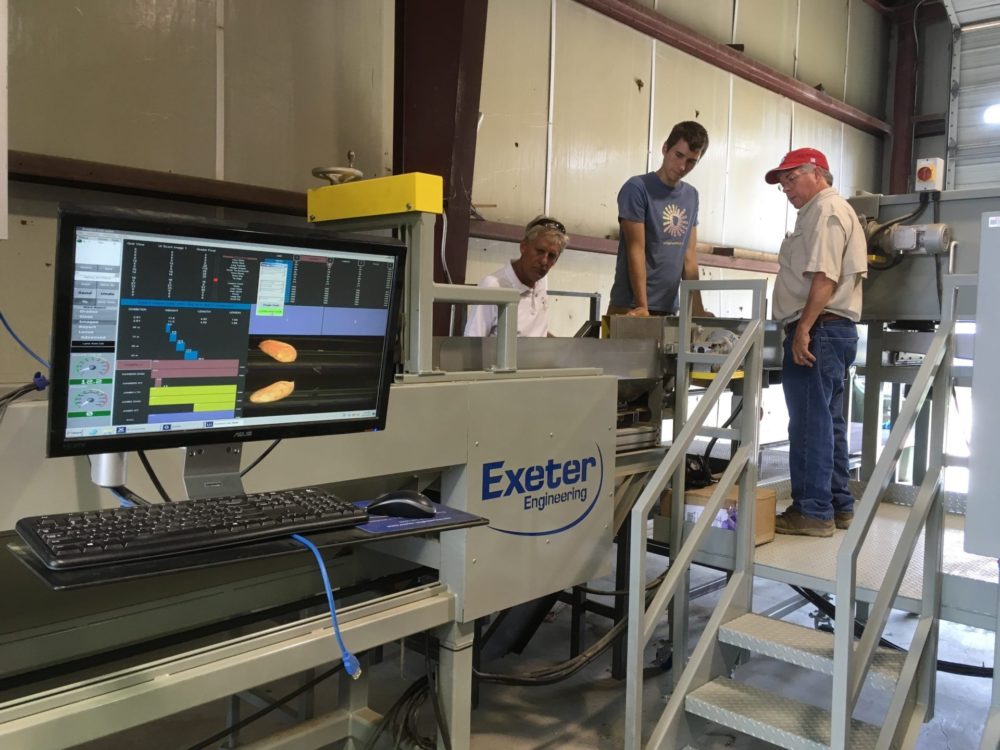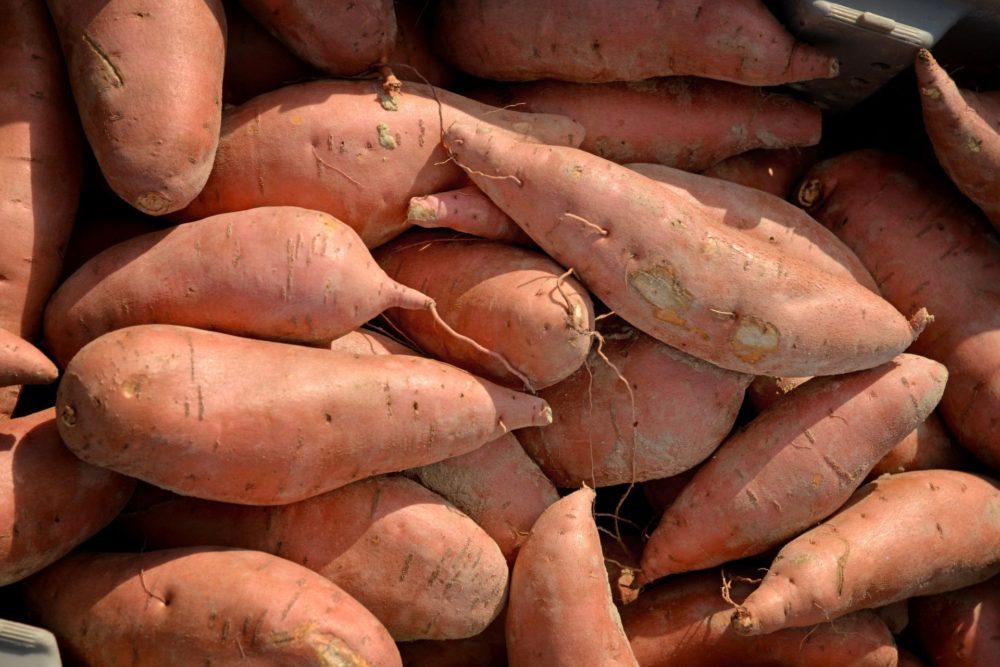When it comes to growing sweet potatoes, North Carolina is a superstar – growing more than the next three US states combined.
Now an interdisciplinary team from North Carolina State University (NC State), SAS, and Intero Life Sciences are partnering for a three-year project that will use artificial intelligence to make sweet potatoes even more profitable. The big data project is part of the North Carolina Plant Sciences Initiative (NC PSI), which aims to bring together academia, government, and industry to drive vital research and innovation to solve the world’s agricultural challenges.
The project team will work with farmers and agribusinesses to image hundreds of thousands of sweet potatoes and then calculate their shape and quality characteristics. Researchers from NC State will combine all of that image data with a host of additional information — growth location, soil and fertilizer type, weather — and use advanced machine learning algorithms to determine which factors impact sweet potato size and shape. The goal is to increase the percentage of sweet potatoes that are rated US Department of Agriculture Grade 1, and thus most profitable for growers.
Help accelerate plant science innovation. Partner with NC State’s College of Agriculture & Life Sciences.
“Our first step starts with the stakeholders, where we are focused on understanding their values and identifying the things that would improve their profitability,” said NC State researcher and project leader Cranos Williams. “By understanding what our stakeholders value, we can provide input on how growers, producers, and distributors can optimize their processes to potentially reduce the occurrence of misshaped sweet potatoes. This will translate to decreased waste and increased value.”
Measuring sweet potatoes
NC State’s Mike Boyette has spent decades improving the value of the North Carolina sweet potato industry including work on controlled storage facilities, value-add products, and measuring the shape and size of sweet potatoes. His work has helped identify quite a number of different factors that might impact sweet potato shape, size, and overall value – but by leveraging the power of big data and machine learning, the team can better help growers sort the metaphorical wheat from the chaff.
“We know from anecdotal evidence that all these things and more have an effect on the shape of the sweet potato,” Boyette said. “You get all of these factors going together but how do you sort these things out? How do you know what you need to do to maximize the value of the sweet potato? The only way is to measure the sweet potatoes coming out of the field.”
Technology has progressed to the point that state-of-the-art packers use an optical scanner to sort their sweet potatoes. These sorters can scan 100,000 sweet potatoes in an hour, producing eight to 10 gigabytes of data per minute, Boyette added.
Now, the challenge is collecting all of that data and analyzing it. This is where Williams and other big data, data analytics, and data privacy experts come in.
“With the team we have put together, we’ve got people who are really good at the sensors and scanning. We’ve got people who are really good at big data management and analysis,” Boyette said. “And ultimately we’ll all work together to improve the value of North Carolina sweet potatoes.”
Partnering to tackle big data challenges
NC PSI has partnered with SAS and Intero Life Sciences to assist with capturing and analyzing the big data associated with this project and others. SAS is a globally-recognized analytical software company based in Cary, North Carolina, and brings to the partnership many data analysis and data modeling tools as well as considerable experience in agricultural data analytics. Intero Life Sciences, a Chapel Hill, North Carolina-based bioinformatics company, is experienced in developing platforms for managing large sets of heterogeneous data, similar to what the project will produce.

“We’re looking forward to working with them and gaining their input, in terms of informing the best way to build the type of platform we’ll need for the project,” Williams said. “And in return, our industry partners will have an opportunity to assess how their solutions can be applied to problems that directly relate to agricultural stakeholders. Oftentimes these industry partners have the experience and the tools but they lack the relationships that NC State has been able to develop with stakeholders.”
Another aspect of the project is to provide students with hands-on training for tackling agricultural challenges with big data. Three undergraduate students are already working remotely on the project.
“A significant part of our workforce training effort is to expose new students to companies such as SAS as well as enable opportunities on further integrating sensor development and data analytics into agricultural problems,” Williams said. “It was important to us to make sure that we can use this project as a mechanism for training the next generation of researchers to be able to tackle problems like this, or even more complex ones.”
NC PSI is the go-to partner for agriculture solutions
As the global home for plant science innovation, the NC PSI breaks down academic and research barriers to cultivate, support, and sustain science teams focused on:
| Plant improvement | Data-driven plant science | Resilient agricultural systems |
| Crop protection | Predictive modeling | Plant and food systems |
| Plant adaptation | Use of artificial intelligence | Food security and human health |
| Microbiomes | IoT and decision tools | Responsible ag production |
We believe progress happens when bright minds come together to share ideas and expertise. If you would like to learn more about our interdisciplinary, team-based research to accelerate discovery, talent development, and applied solutions, contact us now.





